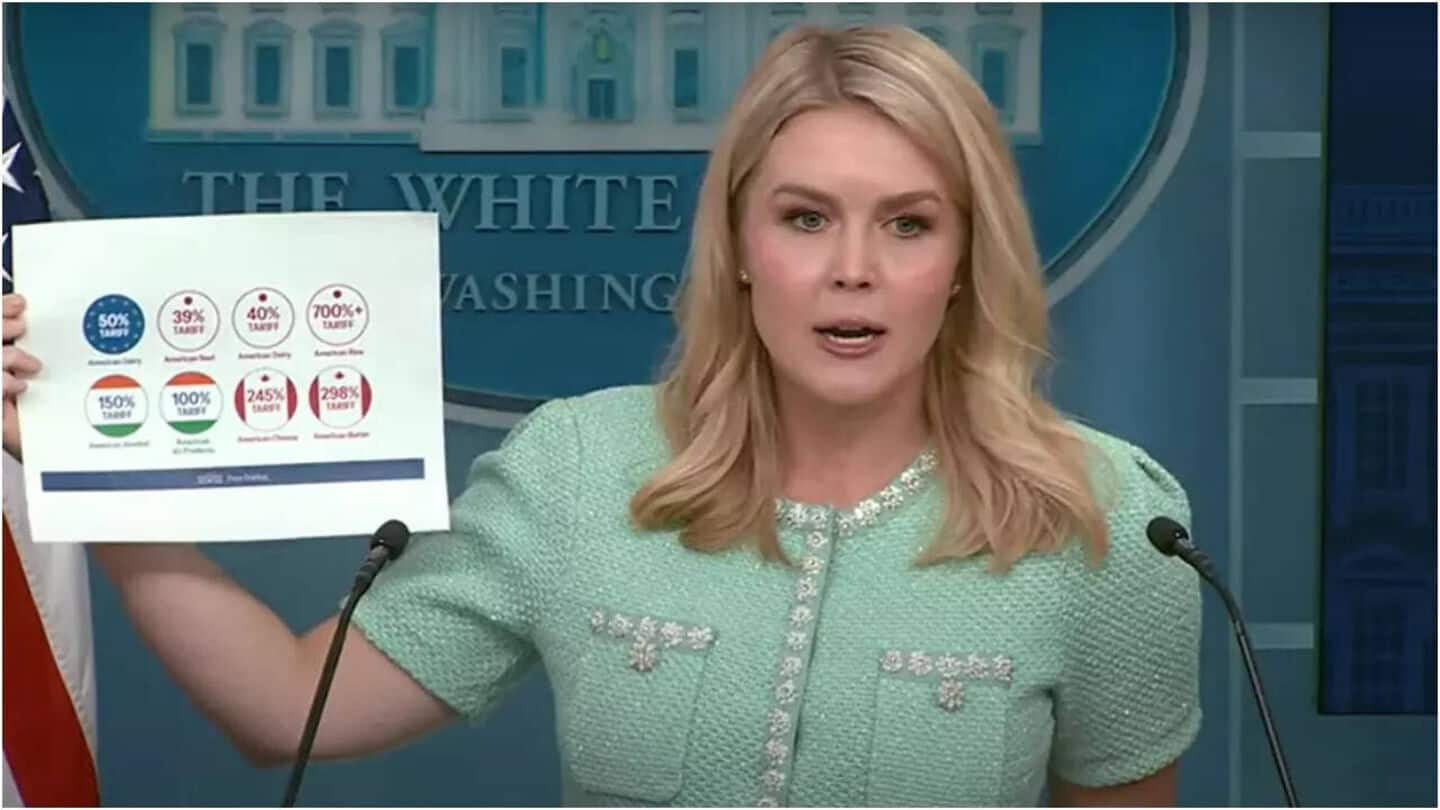
'India charges...100% tariffs': US won't make exemptions on reciprocal tariffs
What's the story
The White House has condemned the steep tariffs by India and other countries on American goods.
The White House Press Secretary Karoline Leavitt reiterated that such high taxes make it "virtually impossible" to import American products into these markets.
The announcement comes a day before President Donald Trump reveals retaliatory tariffs on April 2, a day he has declared "Liberation Day" for America.
Trump
Trump repeatedly called April 2 'Liberation Day'
Trump has repeatedly called April 2 "Liberation Day," promising to impose tariffs, or levies on imports from other countries, that he claims will liberate the United States from its reliance on foreign goods.
To do this, Trump has stated that he will impose "reciprocal" tariffs to match the charges levied by other countries on US products.
However, it is unclear how these taxes will be applied.
Tariff details
High tariffs from other countries
As nations brace for the reciprocal tariffs, Leavitt drew attention to the high tariffs various countries imposed on American goods.
"If you look at the unfair trade practices that we have-- percent from the European Union on American dairy. You have a 700 percent tariff from Japan on American rice."
"You have a 100 percent tariff from India on American agricultural products. You have nearly a 300 percent tariff from Canada on American butter and American cheese."
Tariff strategy
Trump's reciprocal tariffs aim to match higher tariff rates
These high taxes make it "virtually impossible for American products to be imported into these markets, and it puts a lot of Americans out of business," she added.
Trump's reciprocal tariffs are designed to match other countries' higher tariff rates on specific goods.
The move aims to offset non-tariff barriers that put US exports at a disadvantage.
"So it's time for reciprocity, and it's time for a president to make a historic change," she said.
Trade barriers
US Trade Representative's report on foreign trade barriers
The Trump administration has also put out an extensive report on foreign countries' policies and regulations considered as trade barriers.
The annual National Trade Estimate Report by the Office of the US Trade Representative lists average applied tariff rates for trading partner countries and non-tariff barriers.
Stringent food safety regulations, renewable energy requirements, public procurement rules and VATs etc. are included as hindrances to US exports.
Trade dispute
Concerns over EU's new recycling rule
The report also flagged a new EU regulation that requires a minimum level of post-consumer recycled content in plastic packaging.
The US is cautious this may result in "unjustified barriers to US exports."
It flagged Canada's "supply management" system for its dairy, poultry and egg industries as a trigger of trade disputes due to its excessive tariffs on cheese and butter.
Trump will unveil his tariff plan on Wednesday in his first Rose Garden press conference.